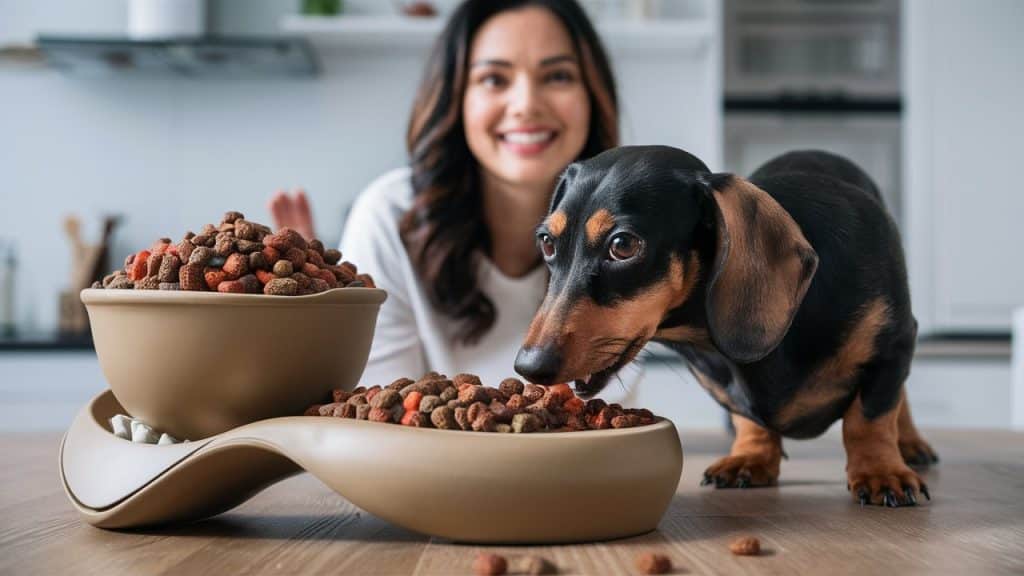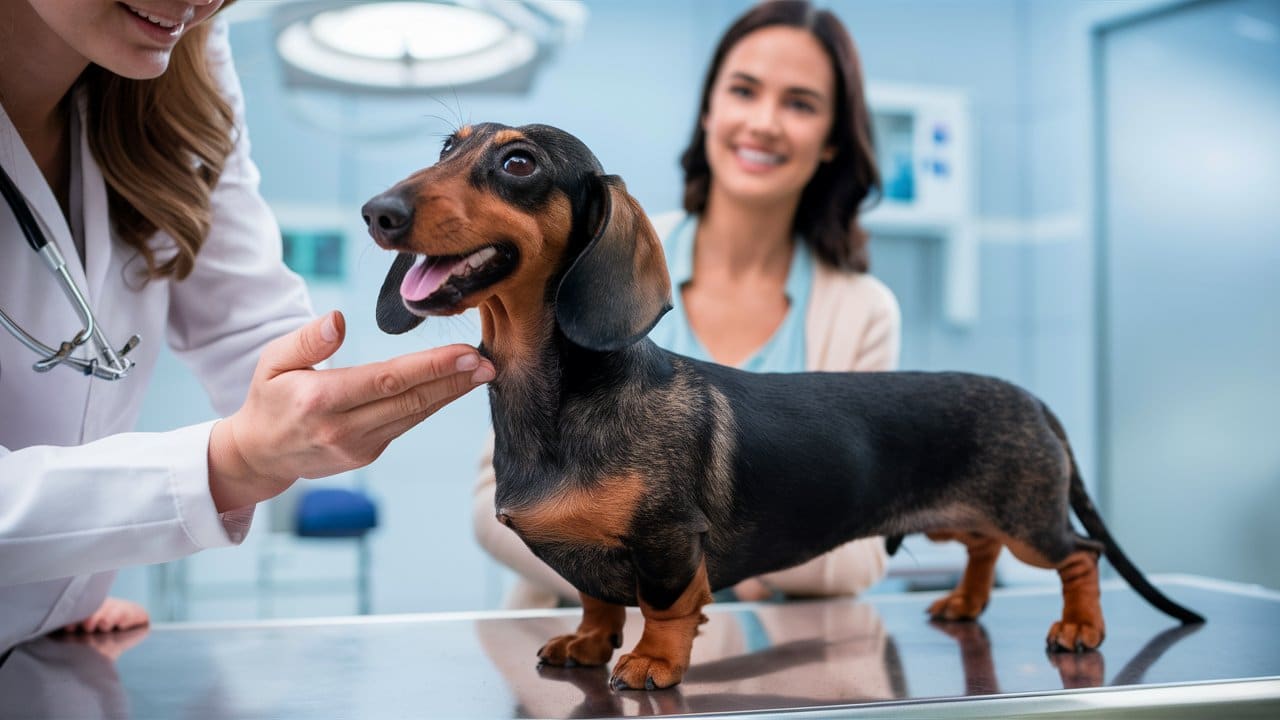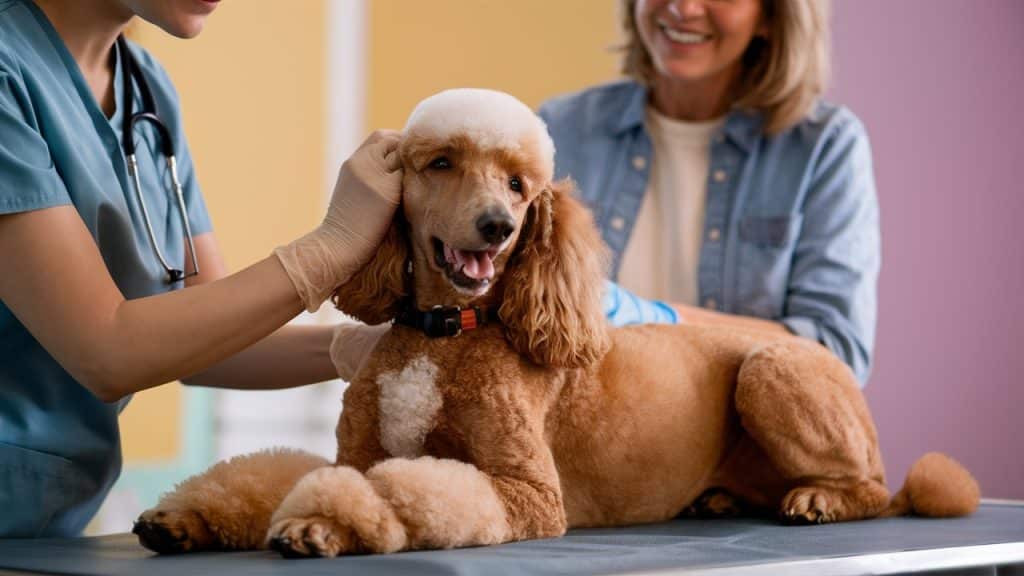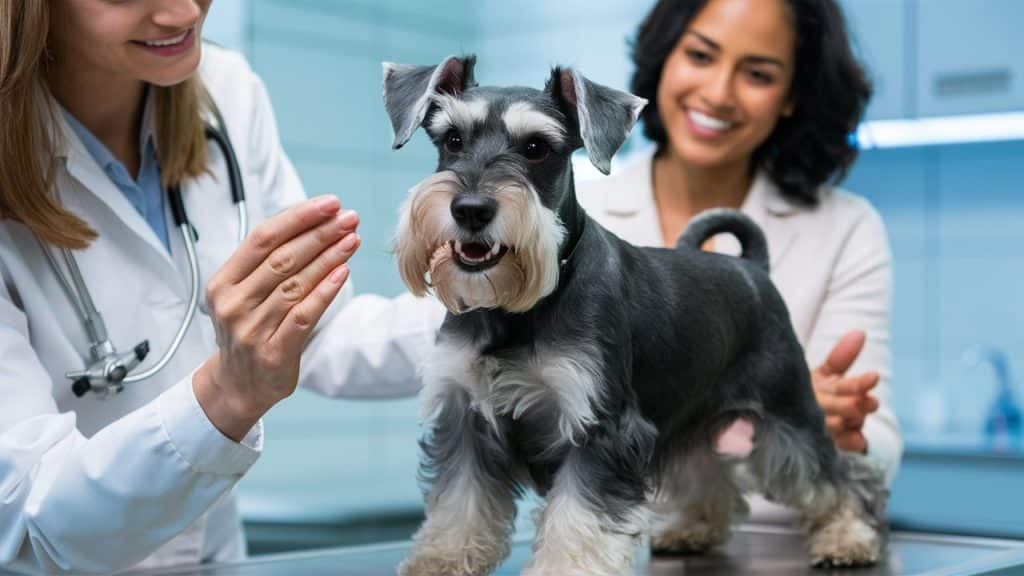Best Dog Food for a Dachshund
As a proud owner of an adorable Dachshund, I'm sure you want the best for your furry friend. And let's be honest, feeding them the right food can be a bit overwhelming. I mean, have you seen the endless options at the pet store? It's like trying to find a needle in a haystack!
Take a quick look at our review page, it's a time saver, great food options sorted for you….
But here's the thing: getting it right is crucial for your Dachshund's health and happiness. Wet food, in particular, can be a fantastic option for our short-legged friends. It's packed with moisture, which is perfect for their unique digestive system. Plus, it can help keep them hydrated and support their overall well-being.
So, what makes a great wet food for Dachshunds? Is it the ingredients, the texture, or something else entirely? In this post, we'll dive into the world of wet food and explore what matters most for our beloved breed. We'll cover the essentials, debunk some common myths, and give you the lowdown on what to look for when choosing the perfect wet food for your Dachshund.
Ready to learn more and give your furry friend the best possible start in life? Let's get started!

Key Takeaways:
- Age matters: Consider your Dachshund's age when choosing their food. Puppies need different nutrients than seniors for growth and joint health.
- Ingredients are key: Look for high-quality protein sources like chicken or fish as the first ingredient. Moderate fats and controlled carbohydrates are also imperative for your Doxie's health.
- Dry vs. Wet: Both dry and wet food have benefits. Dry food helps with dental health, while wet food is good for Dachshunds with sensitive stomachs. Mix it up for the best of both worlds!
With the right food, your furry friend will be bouncing around with joy, ready to take on the world by your side. Best dog food for a Dachshund – nailed it!
Unique Needs of Dachshunds
Prone to Back Problems and Weight Management
With their long bodies, Dachshunds are prone to back problems, making weight management crucial for their health. Preventing excess weight can help reduce the risk of issues like Intervertebral Disc Disease (IVDD).
Lower Calorie Requirements
Unique to Dachshunds, their lower calorie requirements compared to larger breeds mean they need a diet tailored to their size and activity level. Providing the right balance of nutrients is key to maintaining their long-term health.
It's important to understand that every Dachshund is unique; consulting your vet can help determine the ideal diet plan for your furry friend, considering factors like age, health, and activity level. A personalized approach ensures your Dachshund gets the specific care they need to thrive.
Sensitive Stomachs Require Gentler Approach
Any Dachshunds with sensitive stomachs require a gentler approach to food, as certain ingredients can upset their digestion. Opting for high-quality proteins and controlled carbohydrates can help prevent digestive issues and promote overall well-being.
The Importance of a Balanced Diet
There's nothing more crucial than feeding your Dachshund a well-balanced diet. A balanced diet provides all the necessary nutrients your Doxie needs to stay healthy and happy. This means proteins, fats, carbohydrates, vitamins, and minerals working together to keep your furry friend in top shape. It's like giving them a complete tool kit to build a strong and resilient body!
Essential Nutrients for Optimal Health
To keep your Dachshund thriving, you've got to make sure they're getting all the good stuff in their food. High-quality protein sources like chicken or fish are necessary, providing the building blocks for strong muscles. Balanced fats and carbohydrates keep their energy levels stable, so they can keep up with you on those long walks in the park!
Preventing Potential Health Concerns like IVDD
Balanced nutrition isn't just about a full tummy; it's about preventing future problems too! For instance, Intervertebral Disc Disease (IVDD) is a common concern for Dachshunds due to their unique body shape.
By keeping their weight in check and feeding them a diet rich in nutrients, you're helping to safeguard their spine and overall health. It's like giving them a superhero shield against pesky health issues!
Factors to Consider When Choosing Dog Food
Unlike humans, dogs can't just walk into a grocery store and pick out their meals. As a Dachshund parent, it's up to you to make the best choice for your furry friend. Consider these factors when selecting the best dog food for a Dachshund:
- Age: Puppy vs. Senior Dachshund Nutritional Requirements
- Ingredients: High-Quality Protein Sources and Moderate Fat Content
- Dry vs. Wet Food: Merits and Benefits for Dachshunds
Age: Puppy vs. Senior Dachshund Nutritional Requirements
With Dachshunds, age is more than just a number. A growing puppy needs different nutrients for rapid growth and development compared to a senior Dachshund focusing on joint health and digestion. Choosing the right food based on age is key to keeping your little hot dog healthy and active.
Ingredients: High-Quality Protein Sources and Moderate Fat Content
Protein is the MVP of dog food. Look for high-quality sources like chicken, fish, or lamb to keep your Dachshund energized and satisfied. Plus, don't forget about fat content! It's vital for energy and avoiding those extra pounds that can weigh your Dachshund down.
Plus, consider the overall balance of nutrients in your Dachshund's food. Vitamins, minerals, and carbohydrates all play a role in keeping your pup feeling their best.
Dry vs. Wet Food: Merits and Benefits for Dachshunds
Food is more than just fuel for your Dachshund. Dry food helps with dental health and portion control, while wet food offers extra moisture and can be gentler on sensitive stomachs. Mix it up to give your Doxie the best of both worlds!
Puppy food vs. senior food, high-quality protein sources, and dry vs. wet food – these factors all come into play when choosing the best dog food for a Dachshund. Keep these in mind, and you'll be well on your way to keeping your little hot dog happy and healthy for years to come.
Best dog food for a Dachshund – check! Now, time for some tail-wagging fun with your furry friend!
Creating a Personalized Diet Plan

Consulting Your Veterinarian for a Customized Approach
Approach your veterinarian to craft a tailor-made diet plan for your unique Dachshund. Despite the overwhelming options, they can provide expert guidance based on your furry friend's specific needs.
Factoring in Age, Health, and Activity Level
For a fully customized approach, your veterinarian will consider your Dachshund's age, health issues, and activity level when recommending the best dog food for a Dachshund. For instance, a senior Dachshund may benefit from food focusing on joint health, while a young pup needs nutrients for rapid growth.
Debunking Common Myths and Misconceptions
Despite being energetic, Dachshunds are incredibly easy to overfeed and are prone to weight issues, which is why finding the best dog food for Dachshunds is vital. Being overweight can be detrimental to their health as their short legs need to hold the weight of their bodies comfortably.
https://takeabreak.co.uk
Separating Fact from Fiction in Dog Food Marketing
Not all that glitters is gold when it comes to dog food marketing. Food companies love to throw around fancy words and flashy labels to make their products seem like the holy grail of nutrition.
But the truth is, not all that's advertised as the best dog food for a Dachshund actually lives up to the hype. So, my fellow dog moms and dads, let's dig deeper beyond the glossy packaging and decipher what's really in that bag of kibble or can of wet food.
Avoiding Common Pitfalls in Choosing Dog Food
An important fact to remember is that not all dog food is created equal. With so many options lining the shelves, it's easy to get overwhelmed and pick something that might not be the best fit for your precious pup.
That's why it's crucial to pay attention to key factors like ingredients, age-appropriateness, and your Dachshund's individual needs. By doing so, you can make an informed decision that will keep your furry friend happy and healthy for years to come.

Final Words
When it comes to finding the best dog food for a Dachshund, remember that your furry friend's health and happiness are in your hands. By understanding their specific dietary needs and choosing a balanced diet that caters to those requirements, you're setting them up for a long, thriving life full of tail wags and cuddles.
So, whether you opt for dry food, wet food, or a combination of both, make sure you're listening to your Dachshund's cues and consulting with your vet to create a personalized plan.
With the right approach to nutrition, your little hot dog will be ready for all the adventures that lie ahead. Best dog food for a Dachshund, best dog food for a Dachshund, best dog food for a Dachshund. Let's keep those doxies wagging!
FAQ
What should I consider when choosing the best dog food for a Dachshund?
With respect to finding the best dog food for a Dachshund, you want to consider their unique needs. Look for high-quality protein sources like chicken, fish, or lamb as the first ingredient on the food label. Make sure the food has a moderate fat content for energy and controlled carbohydrates to prevent weight gain. Plus, think about your pupper's age – a puppy will have different nutritional requirements compared to a senior Dachshund.
What are the benefits of a balanced diet for a Dachshund?
Ah, the wonders of a balanced diet! For your little sausage dog, a balanced diet provides all the crucial nutrients like proteins, fats, carbohydrates, vitamins, and minerals needed to keep them in tip-top shape. It can help prevent health issues like Intervertebral Disc Disease and keep your Dachshund healthy and happy for a long time.
Dry food or wet food for my Dachshund – which is better?
Dry or wet, that is the question! Both options have their perks – dry food is great for dental health and portion control, while wet food offers higher moisture content. Your Dachshund might even prefer a mix of both! Ultimately, the best choice depends on your dog's preferences and needs, so try out different options to see what works best for your furry friend.




